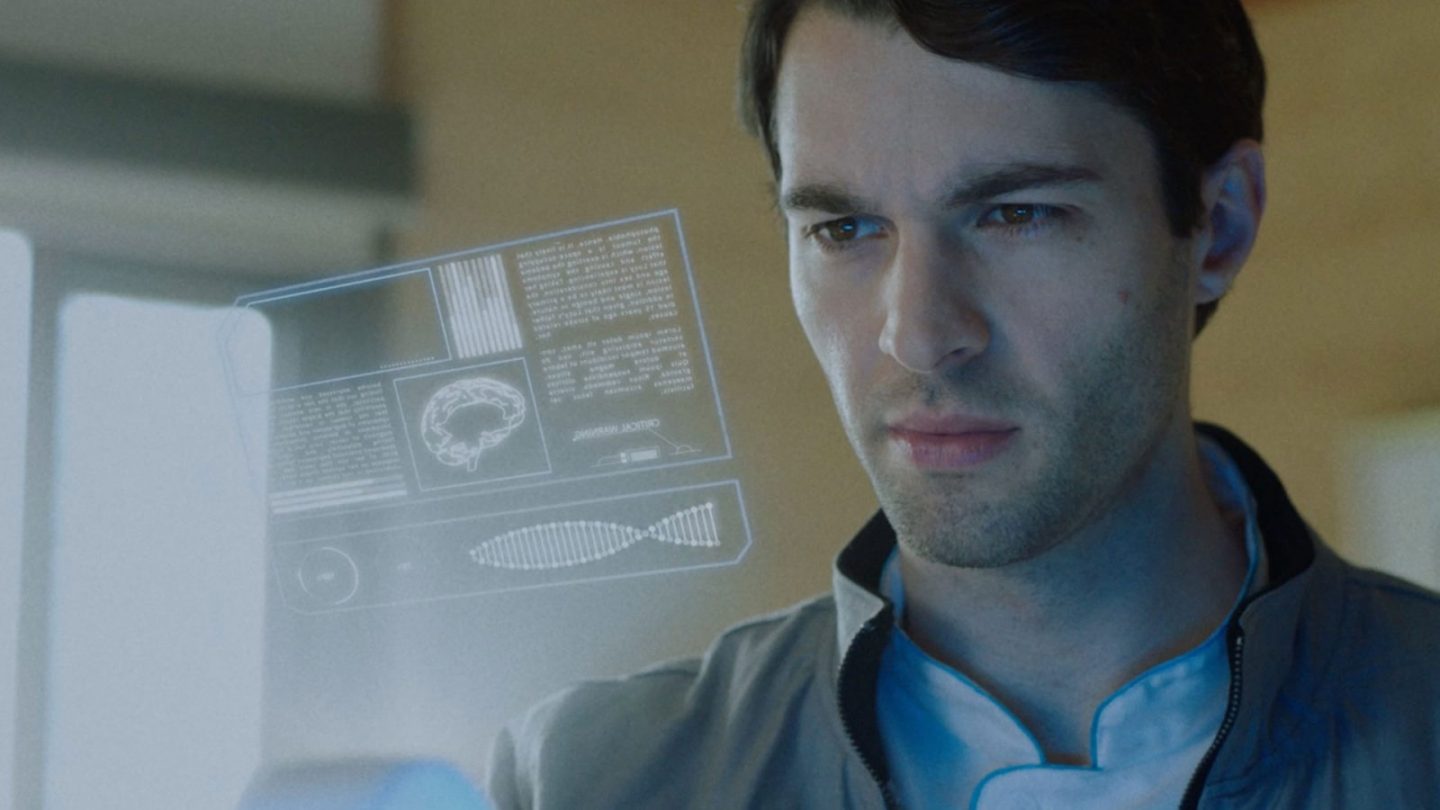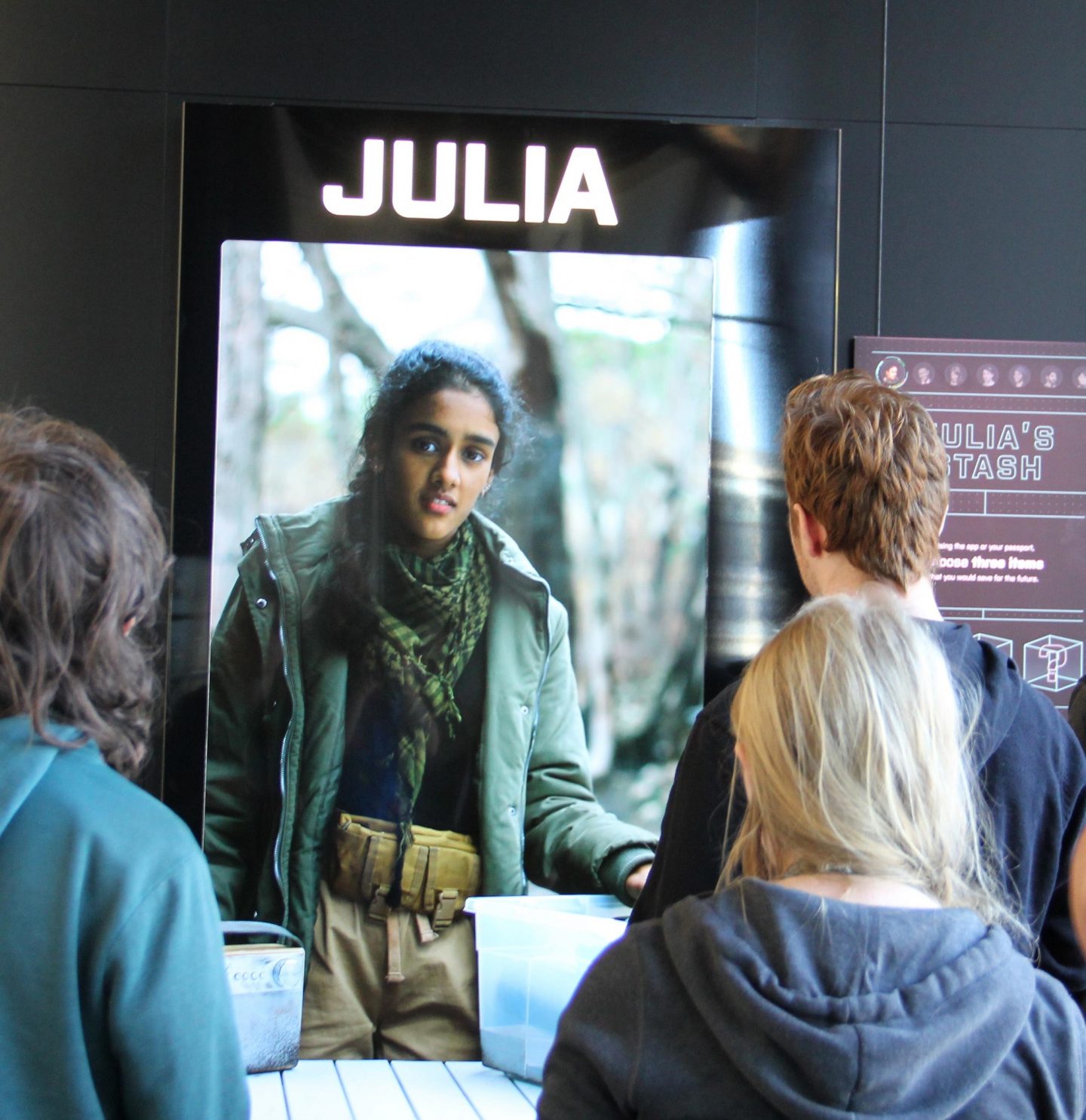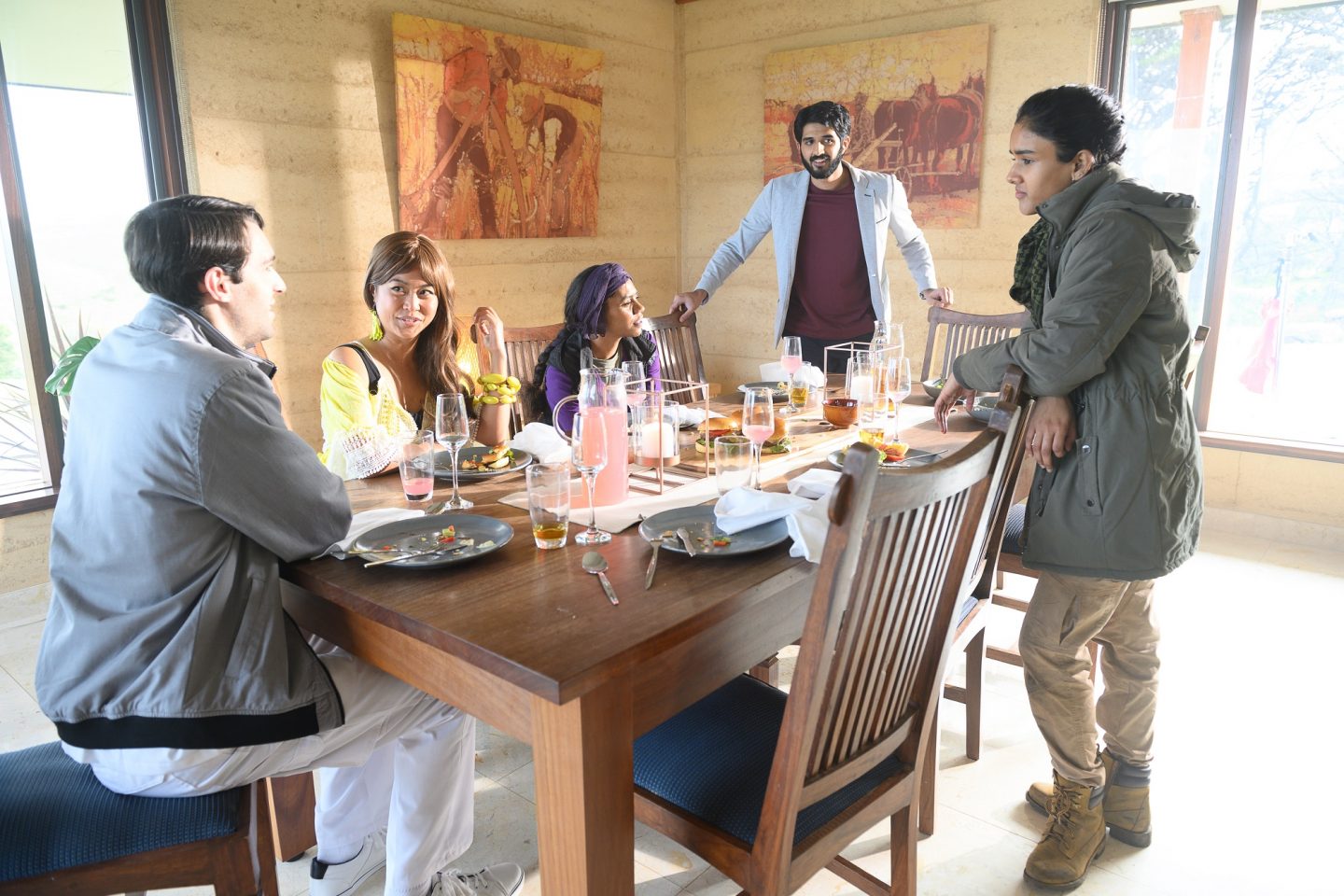In film and literature, visions of the future often oscillate between brave new hi tech worlds and barren, Fury Road-style nightmares. But Seven Siblings from the Future presents an Australia of 2050 somewhere in the middle, a different but recognisable future where environmental upheaval and climate-induced displacement must be navigated side-by-side with advances in technology, healthcare and consumer culture.
They might have holograms in 2050 – of course they do – but, just like the last few decades, these changes are often creeping and incremental, and require different and complementary ideas and priorities to be met.
Using a mix of digital and tactile installations, Seven Siblings boils down these strands into a family of seven young adults who each share a stake in their great grandmother’s secluded seaside property Eucalara. Each personifies a different archetype, a different set of values and skills, and each has quite distinct ideas about how best to secure their mutual future.
 Alex surveys a patient’s electronic health chart
Alex surveys a patient’s electronic health chart
“I think the overall story is one that gets us to recognise that we might have a particular set of values, but that doesn’t mean that they’re shared by everybody,” MOD. director Dr Kristin Alford explains. “And as a broader community we’ll bring different priorities to the values we put on things, but what’s important is that negotiated shared future.”
As our political discourse grows ever more splintered, Alford says, opportunities for these points of difference to be massaged into the consensus necessary for action are increasingly rare.
“Because the siblings are family, they can’t really get away from each other. They have to have these conversations, they have to have these arguments, and even though it’s not easy you can see that through these joint conversations they’re going to, at some stage, have a plan about how they want the future to evolve.”
The siblings are portrayed by an ethnically varied group of South Australian actors cast to subtly reflect the different waves of Australian migration over the past two centures, alongside First Nations peoples. They range from Julia the climate survivalist to Luca the slick wannabe property, Rowan the biohacking scientist to Mia, the heirloom vegetable obsessed foodie who keeps losing work to robots.
 In Julia’s scenario, visitors are invited to choose what three items they would include in their survival pack
In Julia’s scenario, visitors are invited to choose what three items they would include in their survival pack
Through a series of interactive scenarios the exhibition raises thoughtful and pertinent questions in a gentle science fiction setting (embellished with subtle piece of world-building, like multi-lingual signage in the three official languages of English, Mandarin and Pitjantjatjara). Future lifestyles choices are explored via the in-flight entertainment of a ‘hyperspeed’ train carriage: a Perfect Match-style dating show featuring one of the siblings as suitor. Later on, a Snapchat filter-inspired hairdresser salon cheerfully discusses the rights of workers in industries that are transitioning to robotic automation. Meanwhile, the forensic health-tracking capabilities of e-health innovations are set against deeper questions about quality of life through e-nurse Alex.
Originally conceived for Heureka, the Finnish Science Centre in Helsinki, MOD.’s Australian adaptation primarily borrows ideas rather than any actual exhibits. “We really thought it provided a sustainable model for science centres and museums to think about different ways of sharing content which isn’t shipping things across the world,” Alford says. “It allows us to do something in perhaps a slightly more sustainable way.”
The result is an entertaining and often funny ride, that invites visitors to draw on their own values to confront the complex kinds of decision making that awaits us. Most importantly, it also offers a moment to reflect on the limitations of our worldview, and the benefits of some we might otherwise rebuff. Even visitors not naturally inclined to identify with Luca’s entrepreneurial push to develop their late great grandmother’s property into a new marina, for example, might find themselves sympathetic to Alex’s point that the project could be an opportunity to build housing for climate refugees.
 The siblings debate the future of Eucalara over dinner
The siblings debate the future of Eucalara over dinner
“On one level it’s a chance for us to observe that dynamic – especially when they’re at the dinner party – but when you’re going around with a group of friends, you’re having those discussions and unpicking your own value set and challenging yourself to ask, ‘what do I believe, why do I believe it and why do I find this so hard?’,” Alford says. “It’s in those conversations that I think the second thing emerges which is, ‘oh, these things are not easy’, and it’s actually through these conversations and dialogue that we might come up with solutions.
“I think that’s really important,” Alford says. “Assuming we don’t wipe out the human race in 30 years, the future is going to be a place that’s as human as it is now – as complicated and chaotic and uncertain.”
Update 24 March: Due to ongoing COVID-19 pandemic MOD. is closed indefinitely. However, in lieu of physically visitation, from 24 – 27 March MOD. will be running daily virtual tours at midday, and 11am and 2pm ‘deep and meaningful’ sessions highlighting each of the siblings on Facebook Live.
From 30 November
Seven Siblings from the Future
Walter is a writer and editor living on Kaurna Country.
Get the latest from The Adelaide Review in your inbox
Get the latest from The Adelaide Review in your inbox